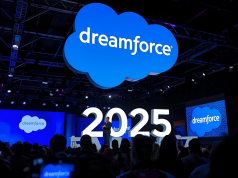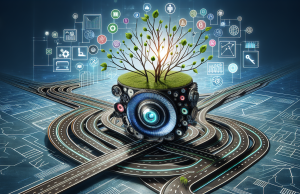In an era where artificial intelligence (AI) and automation are becoming pervasive in the workplace, the challenge for brands is monumental. The tools designed to streamline operations and enhance productivity can inadvertently create a barrier between a company and its customers, as well as within its own workforce. As a Workplace Sustainability Advocate for The Work Times, I believe it’s crucial to assess the importance of humanizing brands and leveraging AI in ways that nurture, rather than neglect, the human connections that form the bedrock of every successful business.
AI has revolutionized the way we work, offering unparalleled efficiencies in data processing, customer service, and even predictive analytics. Yet, with chatbots managing customer inquiries and algorithms dictating personalized experiences, there is a growing concern that brands might lose their human touch, morphing into faceless entities in the eyes of consumers and employees. To avoid this, it’s essential for workers to harness the capabilities of AI not to replace human interaction, but to enrich it.
In cultivating genuine relationships, workers can wield AI as a tool for understanding consumer preferences and behaviors at a granular level, thereby tailoring services and communications with a personal touch that conveys empathy and understanding. AI can enhance conversations by providing real-time insights and context, allowing workers to focus on creative and emotional aspects of their roles that foster meaningful connections.
Companies must strike a delicate balance, leveraging AI for its efficiency and productivity benefits, while ensuring their brand persona remains engaging, trustworthy, and palpably human. Strategies for achieving this include incorporating personal storytelling elements into branding, showcasing the people behind the products and services, and embracing emotional intelligence in all forms of communication.
Personal storytelling serves as a powerful bridge between consumers and brands, allowing shared values and experiences to resonate on a personal level. Emotional intelligence, the ability to perceive, interpret, and respond to emotions, is critical in ensuring digital communication feels sincere and compassionate. To infuse these qualities into AI-driven interactions, brands can program chatbots with conversational tones and empathetic responses, demonstrating an understanding of customer sentiment.
Reflecting on real-world examples, we’ve seen brands like Zappos and Warby Parker excel in creating genuine customer connections despite heavy digital integration. Their secret lies in their ability to blend cutting-edge technology with a human-centric approach to customer service. Conversely, companies that have missed the mark often neglect the storytelling aspect, coming off as robotic and distant.
Within the fast-paced and diverse New York market, workplace branding initiatives must take a cue from these examples. By humanizing their digital interactions, New York brands can stand out and form deeper bonds with their audience. After all, even as we embrace the future of work with AI at our side, it’s crucial to remember that at the heart of every transaction and interaction is a human being seeking a connection.
As we look forward, the role of AI in the workplace will undoubtedly continue to grow. However, it is up to us—innovators, leaders, and workers—to ensure that as our tools become more intelligent, our brands remain unequivocally human.




























